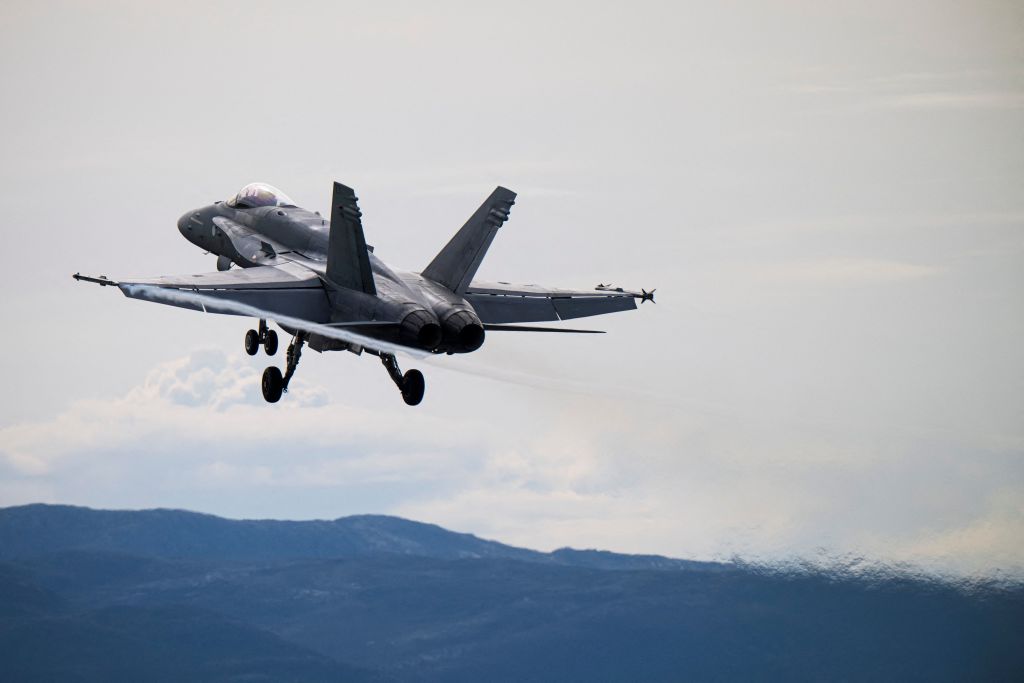
I recently visited Finland, for the first time, to attend the Helsinki Security Forum, organised by the Finnish Institute for International Affairs, on the theme ‘Deter, defend and secure—Europe in the era of radical uncertainty’. This year’s edition, the second iteration of the forum, included a panel on Indo-Pacific security—a sign that Finland’s strategic attentions are not entirely fixated on Russia, or distracted by the policy adjustments required by NATO membership since the former neutral nation formally joined the alliance in April. Finland’s focus is likely to remain on NATO’s expanded Nordic–Baltic front for the foreseeable future, but Indo-Pacific countries, including Australia and New Zealand, can still learn a lot from its example, in terms of continuity and change.
Finland combines a Scandinavian aura of self-assurance with the edginess of a frontline state. Helsinki is closer to Saint Petersburg than it is to Stockholm. With a 1,300-kilometre border with Russia, Finland harbours no doubts about the direction from which potential threats are likely to come. The memory of Russian aggression in World War II is still present—including scars from Soviet air raids in downtown Helsinki. More than a 10th of Finland’s territory was annexed by the Soviet Union, including the second-largest city, Vyborg. This manifests in a popular defence consciousness and willingness to protect the homeland that is absent in much of western Europe.
If an acute military threat were to materialise, Finland’s relatively small peacetime armed forces can mobilise a conscript-based reserve of 280,000 personnel. Theoretically, a total of 870,000 Finns, aged 18–60, can be called on for military service. This is a remarkable scale of mobilisation for a nation of just 5.5 million people, a population similar to that of New Zealand. Conscription has always enjoyed widespread support in Finland, but public approval ratings have surged since Russia’s all-out invasion of Ukraine in 2022. Finland’s concept of ‘total defence’ finds some resonance with Singapore, a city-state with a similar-sized population. Both countries demonstrate that limited manpower is no barrier to a self-reliant defence posture, or to the attainment in parallel of an enviable standard of living.
Finland acquired a reputation during the Cold War for having a foot in both camps, giving rise to the unflattering label ‘Finlandisation’. For over a century, until 1917, Finland was a Grand Duchy of the Russian Empire, though it was never settled by Russians en masse. Maintaining neutrality in the Cold War was a geopolitically precarious juggling act, yet the country’s basic identity remained Western-oriented, paving the way for eventual accession to the European Union in 1995.
During the Helsinki Security Forum, Foreign Minister Elina Valtonen referred to a ‘new Iron Curtain’ on Finland’s eastern border. Every Finn I spoke to expects Russia’s isolation from Europe to be long-lasting, regardless of the military outcome in Ukraine. By joining NATO, Finland has thrown off any remaining ambiguity about its allegiances.
Finland’s entry into NATO has shone a spotlight on the impressive capabilities and practices it brings to Europe’s collective defence and security table, particularly under Article 3 of the North Atlantic Treaty. In the 1990s, as other European countries cashed in the post–Cold War peace dividend, Finland never dropped its guard, maintaining its conscription-based model. In contrast with most European NATO members, Finland has maintained a deep arsenal, a lesson in self-reliance retained from the Winter War in 1939–40, now having to be relearned more widely in Europe in the light of battlefield experience from Ukraine. After significant defence spending increases since 2020, Finland entered NATO committing well above 2% of its GDP to defence, including a US$10 billion pledge to acquire 64 F-35A fighter jets—not far off Australia’s inventory. Its navy is replacing patrol boats and minelayers with new corvettes.
While Finland has good reason to be confident in its ability to fend off conventional military probes from Russia, especially given Russia’s poor offensive performance against Ukraine, the longest-standing lacuna in its deterrence toolkit has been in the nuclear domain. Access to NATO’s nuclear umbrella was an important driver behind Helsinki’s decision to enter the alliance, given Vladimir Putin’s willingness to issue nuclear threats and Russia’s lowered doctrinal threshold for the use of nuclear weapons.
Finland and Sweden, which is on course to join NATO later this year and is also heavily reinvesting in defence, can exploit their geography in ways that constrain Russia’s offensive options in the Baltic and High North. In short order, the Baltic has been transformed into a ‘NATO lake’, raising the risks for Russia’s Baltic fleet and Kaliningrad if hostilities with NATO were ever seriously in prospect (notwithstanding the suspected sabotage of seabed infrastructure in peacetime). Prime Minister Petteri Orpo said at the forum that Helsinki’s membership of NATO wouldn’t be complete until Sweden joined, underlining the closeness of Finland’s relationship with its neighbour to the west.
Finnish authorities’ recent identification of a Hong Kong–registered container ship, along with a Russian vessel, as potentially being involved in damaging a gas pipeline and separate communications cables running across the Gulf of Finland could—if the investigation finds evidence of state involvement—prompt a reassessment of China’s intentions and the risks posed by its deepening security partnership with Russia. Until now, Helsinki has tended to resist the proposition that Beijing and Moscow pose a concerted challenge. NATO membership bolsters Finland’s defence and security, but it could also make the country a target for retaliation below the threshold of armed conflict on a wider international stage. Paying more attention to the Indo-Pacific is therefore prudent.
Between them, the Nordic and Baltic countries have added significant aggregate to the balance of military power and political resolve in Europe as a whole. Finland’s and Sweden’s entries into NATO bring a cohesion to Europe’s defence and deterrence posture that had been missing, even during the Cold War. The abandonment of decades-long neutrality was a bold and unexpected step for Finland to take, adapting to a fundamental change in its strategic circumstances. That ought to be the new definition of Finlandisation.

